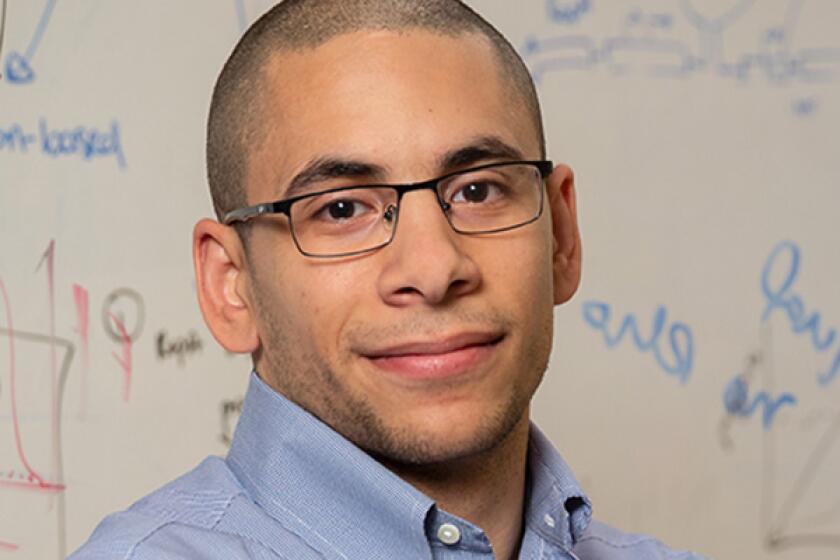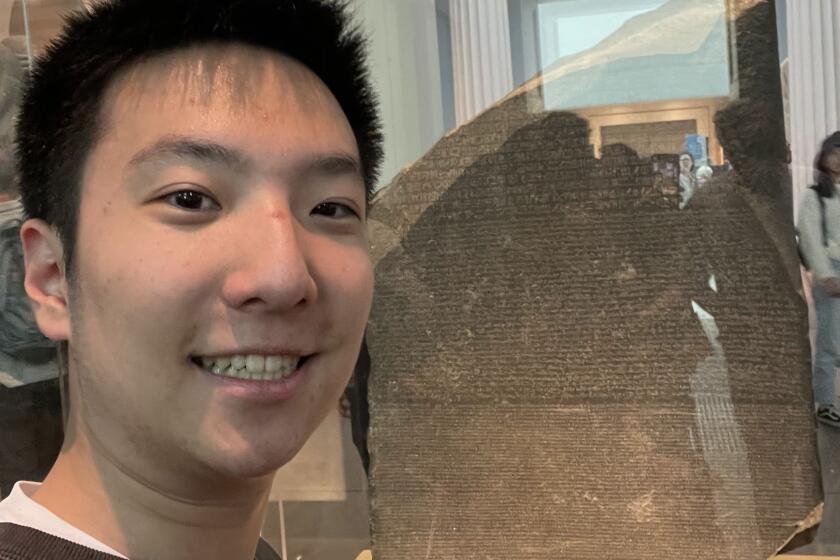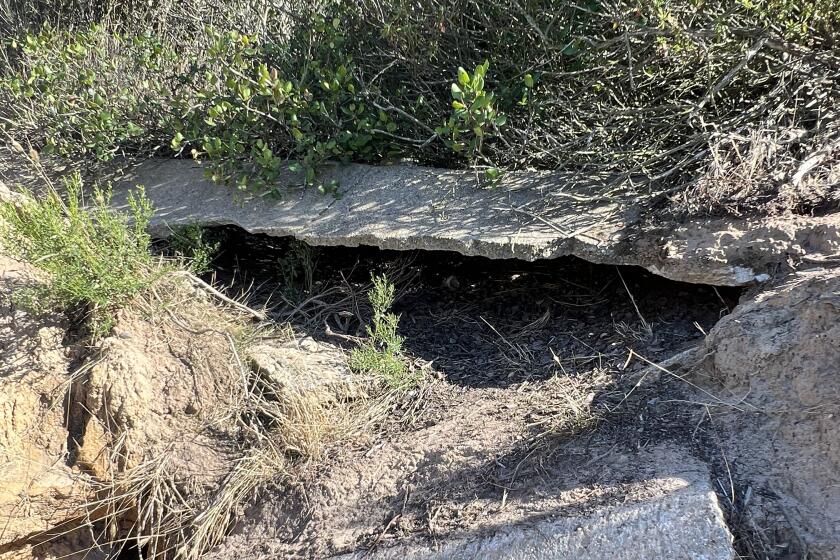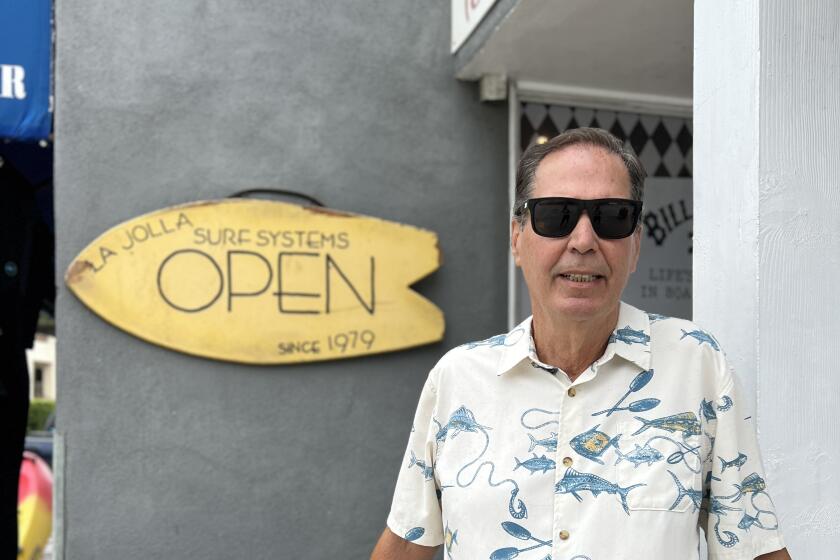UCSD professor was punished for working with Chinese scientists. Is it an ethics breach or discrimination?
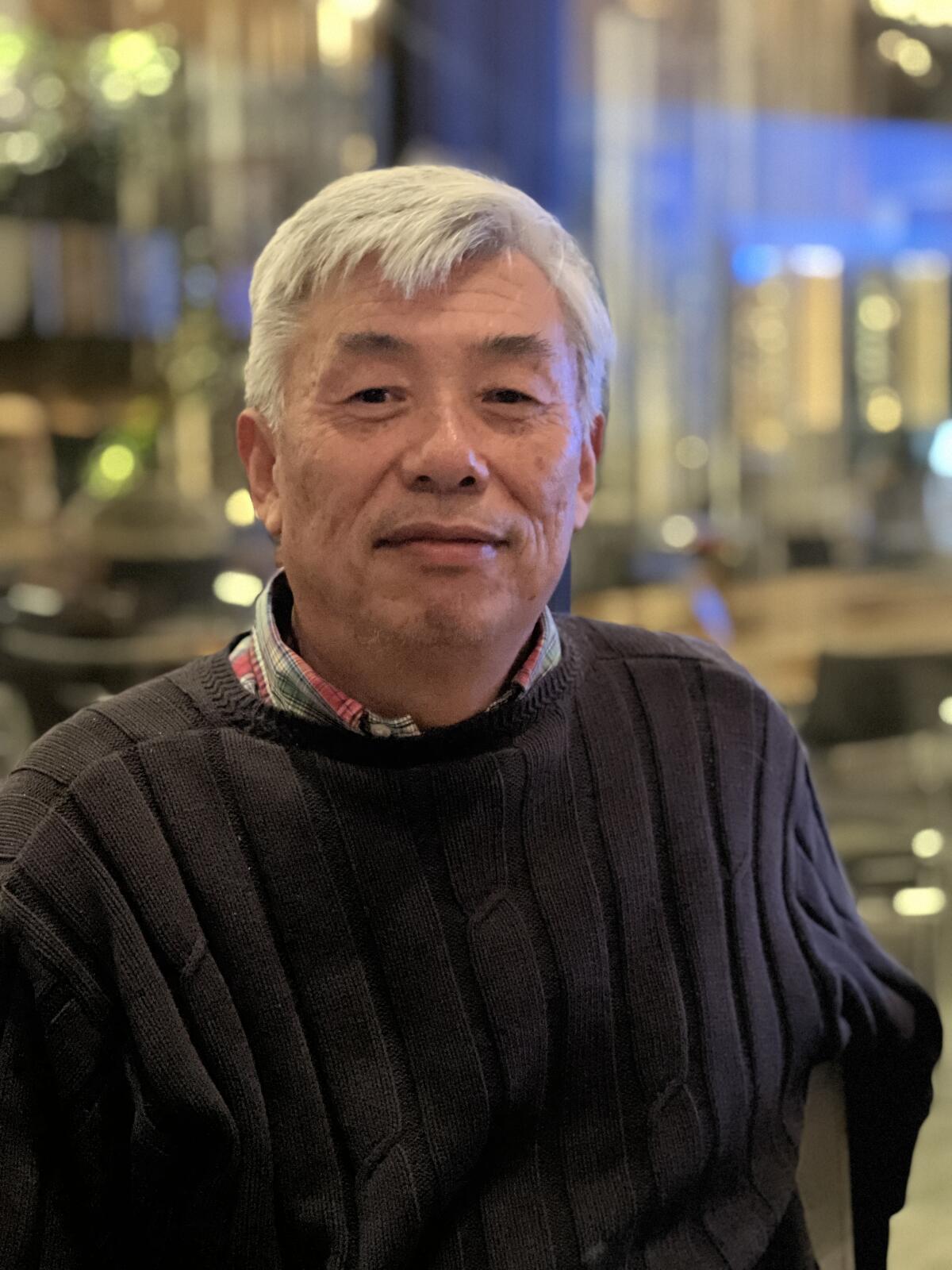
UC San Diego professor Xiang-Dong Fu alleges he has been forced out of his position after 30 years there after being investigated in connection with possible policy violations over his relationships with Chinese universities.
His attorney called the case “an example of an investigation process gone off the rails. … There’s no rational explanation except discrimination and racial profiling.”
Fu resigned effective Dec. 5, though he maintains he has never acted inappropriately or illegally.
During an investigation that began in 2019, Fu was determined to be in violation of UCSD’s “conflict of commitment” policy, which outlines limitations on foreign collaboration.
The university recommended that Fu be barred from obtaining funds from the National Institutes of Health for four years, “which is a very severe punishment,” said his attorney, Kristina Larsen.
A disciplinary panel later recommended that he be suspended for two years.
Get the La Jolla Light weekly in your inbox
News, features and sports about La Jolla, every Thursday for free
You may occasionally receive promotional content from the La Jolla Light.
The investigation followed the launch of the “China Initiative,” a Trump-era program that began in 2018 in an effort to curb Chinese theft of American intellectual property.
The initiative has been criticized as unfairly targeting Chinese professors at American colleges because of their ethnicity.
The U.S. Department of Justice began the initiative, though multiple agencies enacted it, including the National Institutes of Health.
“The general message to all the political agencies was, ‘We need to protect our intellectual property,’” Larsen said. “The initiative … was rooted in this deep-seated suspicion that the Chinese were stealing from us.”
The directives of the initiative “were so broad. It was a fishing expedition,” Larsen said.
Larsen said the NIH sent a letter to universities that employed scientists with ties to China. UCSD received such a letter and began to investigate Fu in light of his relationships with Chinese universities and researchers, she said.
UCSD spokeswoman Leslie Sepuka declined to comment, saying the university does not discuss personnel matters.
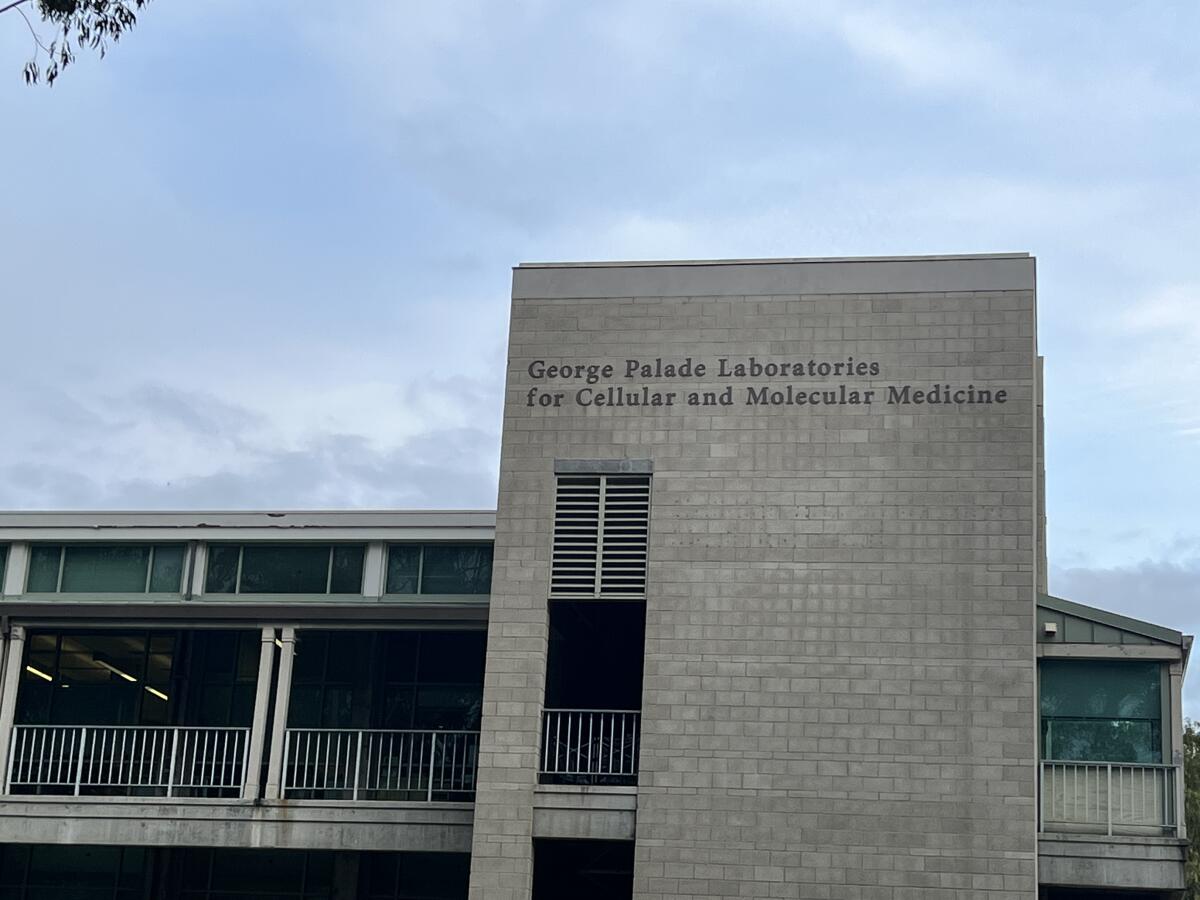
Fu, a Chinese-born American citizen who has lived in the United States for 40 years, had a lab in the UCSD School of Medicine’s Department of Cellular and Molecular Medicine.
He said his research concerns neurodegenerative diseases like Parkinson’s and involves studies on the “basic aspects of RNA.”
While studying RNA, Fu made an “unexpected discovery” in 2009 in which he found a neuron generator in non-neuronal cells, the application of which has meant “remarkable” strides in research on Parkinson’s disease, he said.
The Hanna and Mark Gleiberman Center for Glaucoma Research will be in the upcoming Viterbi Family Vision Research Center.
Fu had been employed by UCSD since 1992 after completing postdoctoral studies at Harvard University that year.
In his time at UCSD, Fu said, he has brought in at least $30 million in grants and research funding for the university. “On average, I have four to five grants per year; each of them is $250,000 to $300,000,” he said.
Much of that is grants from the NIH, he said, though a small amount is from private donors.
The NIH letter to UCSD indicated potential for suspicion of Fu because some of his publications mention Chinese scientists and universities, acknowledging their contributions to his research, along with the NIH.
“This groundbreaking research is a direct result of the relationships that Dr. Fu was building in China,” Larsen said. But the contributions were “intellectual support, not financial,” such as lab assistance in calculations, she said.
Sometimes Fu would receive reimbursement from Chinese institutions for travel expenses between California and China, or the institutions would pay directly for his travel.
Larsen and Fu said the reimbursements and acknowledgment of foreign contributions in scientific papers are common practices and were never a problem until the China Initiative.
Fu said all of his breakthroughs have been at UCSD and not in China. “All the [intellectual property] belongs to UCSD,” he said.
Further, he said, none of the NIH-funded research was conducted outside the United States, per NIH regulations.
Fu and Larsen said that in UCSD’s investigation of Fu’s activities, it interpreted NIH rules as requiring disclosure of any foreign collaboration.
When the NIH indicated it wanted an investigation, “they didn’t give a lot of parameters,” Larsen said. Therefore, she said, UCSD staff “really didn’t know what they were doing or what they were even looking for.”
“What they decided was Dr. Fu is collaborating in China and he didn’t disclose that, even though he was not doing NIH-funded research in China,” Larsen said.
Once Fu “became aware of the political shift,” Larsen said, “he actively worked to distance himself from relationships in China — not because he felt there was anything wrong with it but because he was afraid of the unknown.”
Fu said no one encouraged him to cease his collaboration in China.
The investigation started in early 2019, and Fu was notified in February 2020 that the NIH was satisfied by the investigation and UCSD’s corrective action plan — barring him from NIH funding for four years.
But UCSD continued to investigate, Fu said, and determined that the travel reimbursements equated to payment by Chinese institutions.
Further, Larsen said, UCSD became suspicious that Fu’s name appeared on Chinese grants. Larsen said he was lending his scientific prestige “to help the people who are getting funded by those grants. … He basically was an advisor; he got no money from the grants.”
The UCSD Office of Ethics and Compliance determined that Fu was in further violation of the conflict-of-commitment policy, and he was told in January this year.
He was given a choice, he said: Resign or face a disciplinary hearing to determine whether he should be dismissed.
“I was shocked,” Fu said. “I didn’t do anything wrong.”
That led him to hire Larsen, who said Fu was not provided a copy of the full investigation report until after he hired her.
At the time, Fu opted for a hearing, choosing “to stay and fight for his reputation,” Larsen said.
Before the NIH-prompted inquiry, no one at UCSD, including Fu’s department supervisors, had ever indicated a problem with his relationships in China, he said.
He maintained that none of his actions were inappropriate or against UCSD policy.
“Many, many other people [are] doing the same thing,” he said. “This is targeted.”
Larsen contended UCSD not only wasn’t uneasy about Fu’s past collaboration but was “happy to benefit from it.”
The University of California system receives billions of dollars in NIH funding every year.
Though the China Initiative was dropped nationally in February, UCSD pursued the hearing for Fu, and it was held in May.
Larsen characterized the hearing as discriminatory against Fu, violating his rights as a faculty member in that he was never contacted to rebut or respond to any of the investigation’s findings, nor were any health sciences peers on the hearing committee, which she said is essential to the process.
Fu said his direct supervisor, department Chairman Don Cleveland, testified that Fu did not violate any policy.
Cleveland did not respond to a request for comment.
Larsen filed a formal grievance with the university during the hearing, but she said she has not received a response, though the university by law has 90 days to reply, she said.
In August, the hearing committee recommended to UCSD Chancellor Pradeep Khosla that Fu be suspended for two years instead of being terminated.
Khosla upheld the recommendation in October, which led Fu to resign this week.
“To me, two years’ suspension is equivalent to dismissal, because once you lose your team, you cannot do research anymore,” Fu said.
Larsen said she believes Fu should sue the university but that it’s ultimately his decision. “I believe he has a very good case,” she said. ◆
Get the La Jolla Light weekly in your inbox
News, features and sports about La Jolla, every Thursday for free
You may occasionally receive promotional content from the La Jolla Light.


